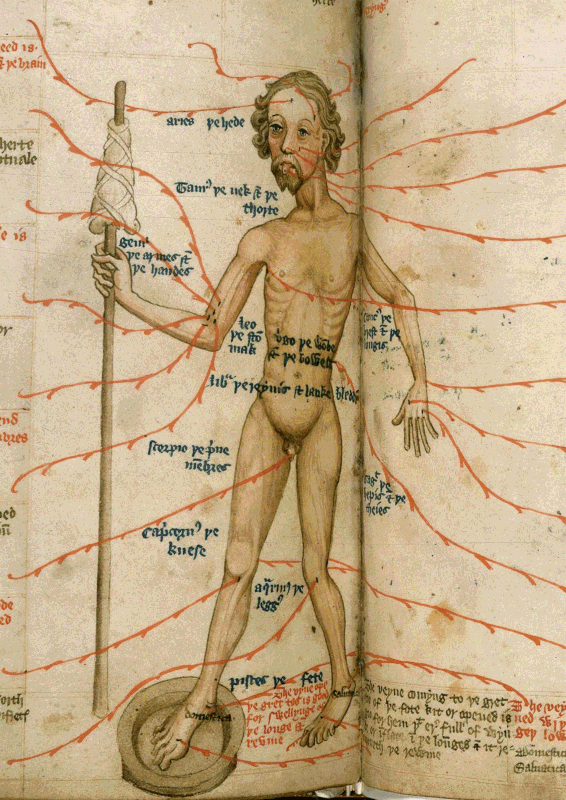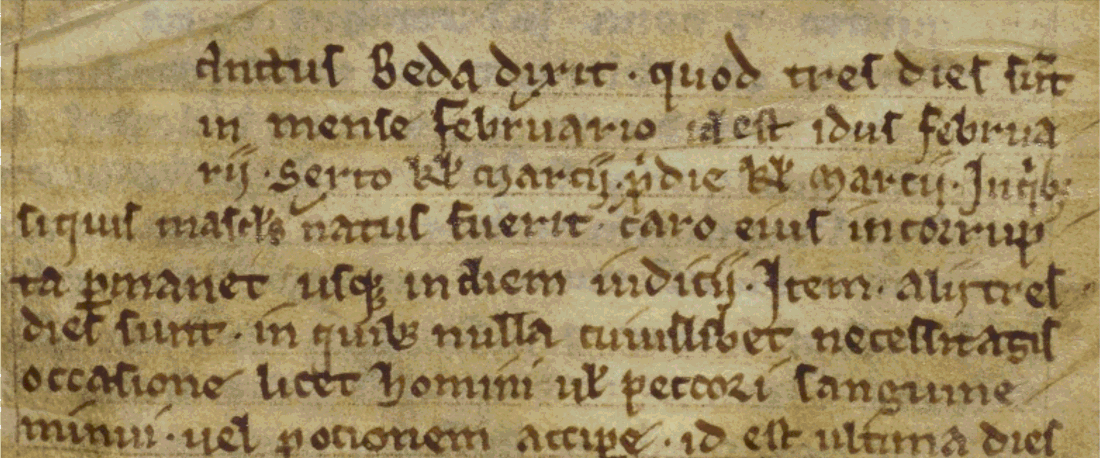|
Blessed ones, The other Monk of this website, Dr Christopher, is presently carrying out research for a book he's writing about the mundane aspects of Benedictine monastic life. Now, as I cannot always be available to provide you with spiritual morsels, I thought it would be tolerably good to let him offer, for your consumption, some tid-bits of a more profane kind from his research. Over forthcoming weeks and months, therefore, Dr Monk will be writing blog posts related to what he's currently reading and translating. This will be in essence, blessed ones, an exercise in tantalising, for he does not wish to show and tell everything before he actually publishes the book, which of course he wishes you to buy. Mercenary fellow! Hello readers, Here's the first of my research snippets. It's a translation of the beginning of a text (see image above) found in the 13th-century book known as Custumale Roffense, or the Rochester Custumal. This work is a survey of the rents and customs owed to the monks of the cathedral priory of St Andrew's in Rochester by their tenants who worked and lived on their various estates. As you will see, however, this extract actually has nothing to do with rents and customs. Rather, it's from one of several medical texts that surprisingly pop up in the opening pages before the custumal proper starts. We can only surmise that the monk-scribe who included it thought it would be very useful. See what you think: Saint Bede said that there are three days in the month of February, that is the Ides of February [13th], the sixth of the kalends of March [24th February], and the 11th day of the kalends of March [19th February], in which if anyone is born male, his body continues uncorrupted until the day of judgement. As someone who has spent a lot of time reading early medieval (Anglo-Saxon) works (i.e. texts dating to before the Norman Conquest of 1066), I find it really interesting that one of the key writers of the period, the Venerable Bede (672-735), is alluded to in this thirteenth-century material. Athough there is not universal agreement that Bede actually wrote a medical text, it is clear that Anglo-Saxon medical works survived and were consulted during the later medieval period. How closely they were followed is more difficult to determine, especially when we consider that different sources give different 'bad days' for such things as bloodletting. It seems to have been a very precarious business, seeking medical treatment in the Middle Ages. The text that appears in the Rochester custumal reads like a compilation from various earlier material, drawing upon a Latin work (usually attributed to Bede) known as De minutione sanguinis sive de phlebotomia ('On bloodletting or phlebotomy') as well as vernacular works known as leechdoms or leech books, written in Old English. Useful reading material:
Elizabeth Lazenby, 'De minutione sanguinis, sive de phlebotomia: On blood-letting or phlebotomy, by the Venerable Bede: A translation and commentary', in Medicine in Northumbria: Essays in the History of Medicine (The Phebus Society, 1993), pp. 58-80. Stephen Pollington, Leechcraft: Early English Charms, Plantlore, and Healing (Anglo-Saxon Books, 2000).
4 Comments
Janilee
20/8/2018 11:35:13 pm
I know that image.
Reply
Chris Monk
21/8/2018 07:08:48 am
Might you have seen it in your spindle research?
Reply
Janilee
22/8/2018 01:43:45 pm
Distaff, but a related search. Your comment will be posted after it is approved.
Leave a Reply. |
Details
|



